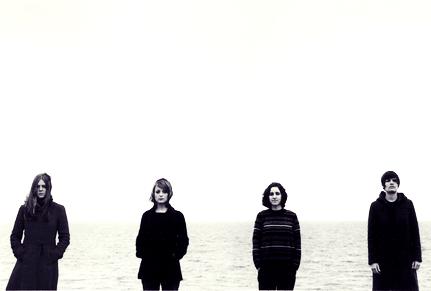

The different places “Five” goes to are at first interesting, from straight alt-rock into the darker and more distorted, the instrumental takes it one step too far, and too long (six minutes in total), with a jump into techno-rock. Unfortunately, the recording-ending orchestral jam of “The Lighthouse” is only okay, and not particularly impressive, while the rock ‘n’ roll instrumental build goes into rock ‘n’ roll droll on the uninteresting “Between the Wolf and the Dog”. “Call” is followed by the first (and best) of the record’s four instrumentals (minus some “oohs” and “aahs”), “Tram 21”, whose keys and driving beats are rather like being on a ‘tram’, but one of those neat Parisian visions of ‘trolleys of the future’ in fifties French New Wave cinema. Luckily, it’s book-ended by the growing-but-not-‘bright’ keyboards of the anthemistic “The Greater Times”, and the catch chord riffs of the fast-and-sharp “After the Call”. The first single, “To the East”, may not have anything to do with EU expansion past the Iron Curtain, but it goes over about just as well: somewhat driving, somewhat pretty, but not quite developed enough. One quality inclusion on Shouts is the ‘Swedish Invasion’-style indie-pop of “Cut and Run”, which may only be bite-sized in terms of complexity, but it is a very tasty bite. Whatever it is, on No Shouts, No Calls, Electrelane still have it in spades, on a record where they find a nice balance between their last two albums: more rocking than Power, and more melodic than 2005’s Axes. Maybe it’s the band’s vaguely Romance language-sounding name, or that the four women have a look reminiscent of the sixties New Left ‘Women of the World, Unite!’ that was found from the banks of the Seine to the banks of the Danube. Or maybe it’s their world-spanning lyrics, which go from multilingual (2004’s The Power Out) to non-existent (2001’s largely instrumental Rock It to the Moon).

Despite their Brighton, England roots, there’s always been something rather Continental about Electrelane.


 0 kommentar(er)
0 kommentar(er)
